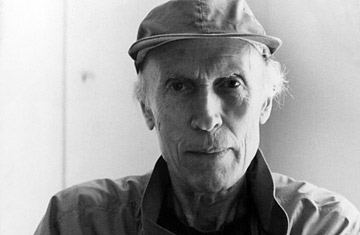
French filmmaker Eric Rohmer
Of all the French film critics who in the late 1950s turned to moviemaking and created that splash of cinematic vigor known as the new wave, Eric Rohmer was the last to achieve international acclaim. François Truffaut, Jean-Luc Godard and Claude Chabrol had enjoyed a decade of renown by 1969, when Rohmer made his sublime talkathon My Night at Maud's. He was nearly 50 then but was just getting started as a gentle force in world film. For the next 40 years, he charmed and challenged moviegoers, producing exquisite miniatures, until his death on Jan. 11 at 89.
Born Jean-Marie Schérer in the province of Lorraine, he came to Paris after World War II. Before becoming a director, he taught literature, wrote a novel and, from 1957 to '63, was the editor of Cahiers du Cinéma, the house organ of a cinematic revolution. Taking his nom d'écran from director Erich von Stroheim and pulp novelist Sax Rohmer, he developed a series of film franchises: Six Moral Tales in the '60s and '70s, Comedies and Proverbs in the '80s and Tales of the Four Seasons in the '90s.
Unlike Hollywood's blockbuster franchises, Rohmer's movies didn't send star warriors or spider-men on grand quests to save the world. Instead, his protagonists--usually bright, willful young women--sought a simple wisdom about their own small worlds and the men who caught their fancy. These battles of the sexes played out in endless amusing chats. Each film was both a blithe evocation of love and a probing essay on it.
From this simple format came such beguiling baubles as Claire's Knee, Chloe in the Afternoon, Pauline at the Beach and Rendezvous in Paris--perfect little films that revealed much about the way people try to live with and without others. The miniaturist had created an epic that took his whole life to tell.
